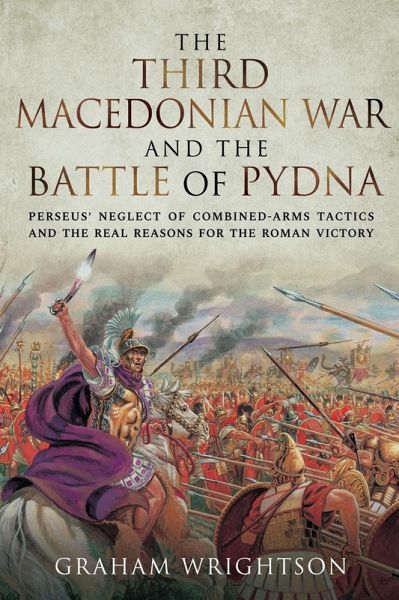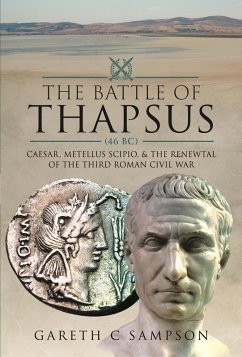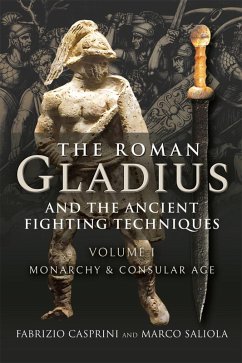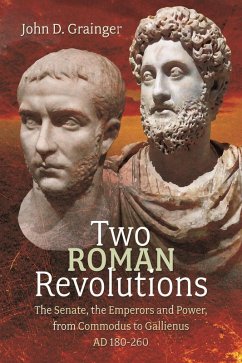
Third Macedonian War and Battle of Pydna (eBook, ePUB)
Perseus'' Neglect of Combined-arms Tactics and the Real Reasons for the Roman Victory

PAYBACK Punkte
4 °P sammeln!
The Third Roman-Macedonian War was a disaster for Macedon, a defeat leading to the end of that kingdom''s independence. This is usually attributed to an innate superiority of the Roman legionary tactics over the Macedonian system. Graham Wrightson, on the other hand, argues that the blame lies entirely with Perseus, the last king of Macedon. He analyzes the whole war, following the primary source accounts and focusing on Perseus' military decisions and his battlefield strategies. It confirms the prevailing view of the sources that Perseus was too hesitant and non-committal in his early conduct...
The Third Roman-Macedonian War was a disaster for Macedon, a defeat leading to the end of that kingdom''s independence. This is usually attributed to an innate superiority of the Roman legionary tactics over the Macedonian system. Graham Wrightson, on the other hand, argues that the blame lies entirely with Perseus, the last king of Macedon. He analyzes the whole war, following the primary source accounts and focusing on Perseus' military decisions and his battlefield strategies. It confirms the prevailing view of the sources that Perseus was too hesitant and non-committal in his early conduct of the war. More significantly it argues that Perseus mishandled the Macedonian army when it comes to combined-arms tactics by adopting a defensive posture, particularly at the final battle of Pydna. The Macedonian military system based on a slow sarissa phalanx is suited entirely to an offensive battle plan coordinating a frontally irresistible phalanx in the centre and a rapid heavy cavalry attack on one wing. Most importantly, though, Perseus refused to spend money to hire 10,000 Gallic horsemen and the lack of cavalry cost him the initiative and the victory. This is a fascinating and thoroughly researched study of these dramatic events that adds fresh insight to the question of the legion''s supposed supremacy over the phalanx.
Dieser Download kann aus rechtlichen Gründen nur mit Rechnungsadresse in A, B, BG, CY, CZ, D, DK, EW, E, FIN, F, GR, HR, H, IRL, I, LT, L, LR, M, NL, PL, P, R, S, SLO, SK ausgeliefert werden.













